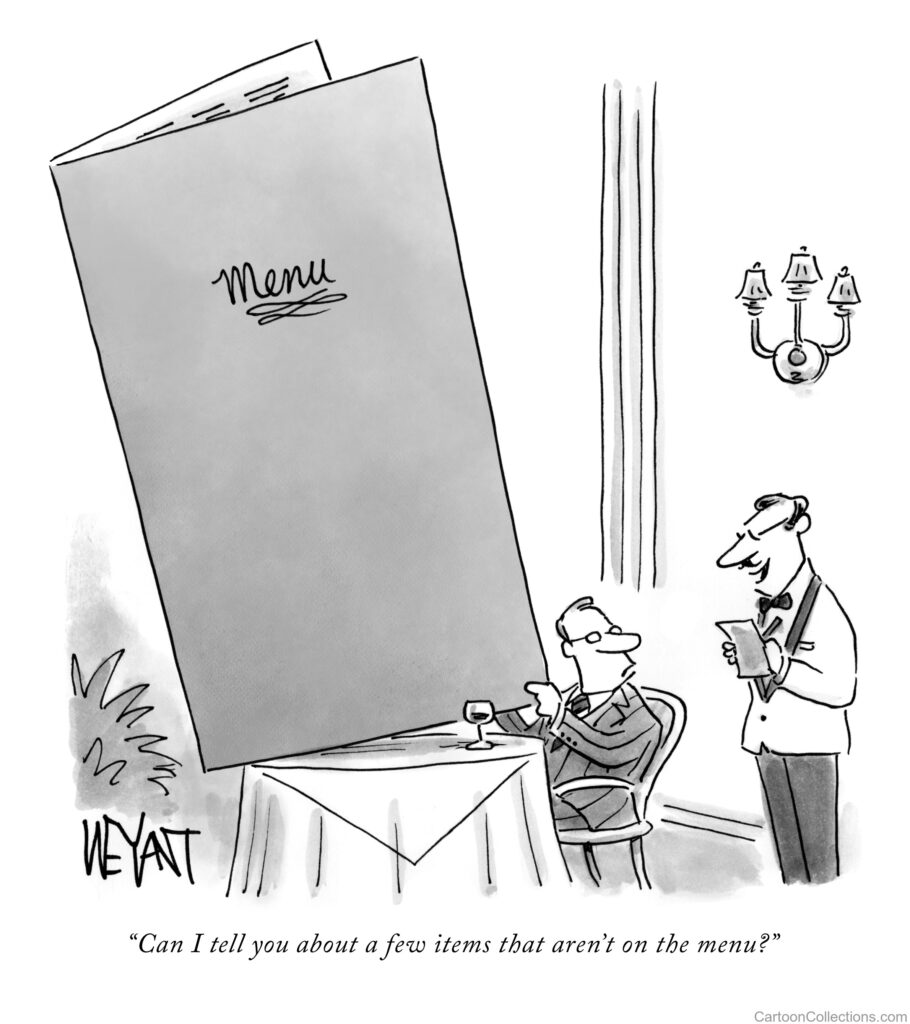
I recently strolled down the aisles of our local Whole Foods grocery store. I couldn’t help but notice that they offer twelve types of apples. Twelve. Likewise, the menu at Starbucks is extreme. Choosing a 401(k) plan is complicated. Deciding on a cable provider and the level of programming can take an inordinate amount of time. There are just too many choices.
American psychologist Barry Schwartz advises against offering so many choices.
In his book, The Paradox of Choice: Why More Is Less, Schwartz argues that sometimes, offering fewer choices is better than offering many. A large selection can lead to paralysis and indecision.
For instance, eliminating consumer choices can greatly reduce anxiety for shoppers.
To test this theory, a supermarket set up a stand where customers could sample 24 varieties of jelly. They could try as many as they liked and then buy them at a discount. The next day, the owners carried out the same experiment with only six flavors. They sold ten times more jelly on day two. The first day, the wide range of choices was overwhelming to customers so they bought less.
Because modern Americans value autonomy, self-determination, and freedom of choice, we assume that more choices mean better options and greater satisfaction. But apparently, there is a level at which too many choices is counterproductive.
Choice overload can make you question your decisions before you even make them, it can set you up for unrealistically high expectations, and it can make you blame yourself if you choose unwisely. In the long run, too many options can lead to decision-making paralysis, anxiety, discontentment, and may cause us to confuse the unimportant with the important.
The key is balance: Offer people choices but not too many. And when making personal choices, consider fewer and simpler options, and don’t belabor making decisions.

Timely.
Thanks, Ted.
Thiese choices would seem reasonable when the limiter of the choices always has your best interest in mind. For example my evil nature choices would be classified into three groups; bad, worse, and evil. My Godly choices would also be grouped into three; good, better, best. As a Christian I get to select one of six, as a non Christian only one of three. The logical argument you are making is that choosing should be easy and less complicated but that will only lead to deception. All choices must be considered and diligence must be given before committing to a choice. Thanks for the stimulus.
Thanks, Dwight, for taking the time to write. In major ways, choices shape our lives. Don
Too many choices is right on. A few years ago when I was in a Walmart I wanted to get a Bar-B-Q Sauce and thought I was going to lose my mind trying to decide what to buy, approaching a nervous breakdown.
James, you’re right – too many choices is unnecessary.
Very interesting!
Thank, Ken.
A confused mind says no! Great examples, easy to read and consume.
Tim, I like your phrase “a confused mind says no.” Thanks for responding. Don
Excellent advice
Thanks, Mary.
Good article! Reminds me of 2 quotes/sayings: 1.) “If you give the consumer too many choices, they won’t choose anything.” and 2.) “Everything in moderation.” Thanks, Don! Happy Holidays to you and Mary!
Thanks, Dick, for taking the time to write. I like both of your quotes. I’m writing a post on moderation; Aristotle said it was the essence of virtue. Have a good holiday season. Don